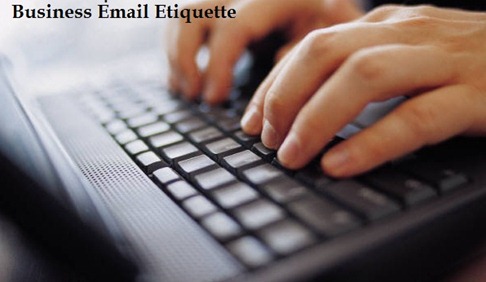5 Golden Rules for Your Business Email !
"One shit deal…" This phrase got one of the largest investment companies in the world in a messy soup during the Global Financial Crisis. One of their employees wrote this to another in an email, which was used against them in the court of law. Well, that’s that…
Read on to know how you can avoid such blunders and a few rules that you should follow for your business email.

Communicate, Don’t Express
If you are writing an email to a client, customer or an employee, make sure that you communicate in that email. There is absolutely no reason why you should be expressive and generate a certain tone in the email.
For example, if you want to praise an employee for a job well done, you can write "You have done well this month. We appreciate your efforts" instead of "Wow! You’ve done a splendid job. How I wish you worked like this every month!" Use this rule for your business emails because being expressive in an email may feel warm, but that’s not why we’re here to do business, are we?
Some of you may disagree to what I just said, however, it is a habit and this emotive or overtly expressive communication may also lead you to write something exactly like "One shit deal…"
Keep it to the Point
"Hi John. How are you? Did you have a good vacation in Bangkok? I hope you visited the places I recommended and had lots of fun, if you know what I mean. You must show me pictures the next time we meet. Oh wait, don’t bother. I’ll check them on your facebook. Anyways, getting to the point, I wanted to speak to your regarding a recent business deal with one of your clients…."
If your emails read like this, stop! This rule for your business emails is critical because remember that your emails can be printed in any office around the world. Do you really want your clients or customers to read about your suggestions to John regarding his Bangkok trip?
Business emails should be to the point and address the issues they are meant for. Nothing more, nothing less.
Don’t write anything that can cause a legal burden
It is easy to get carried away in the heat of the moment and write something on the lines of "…We’ve done all we could. It is unfortunate you don’t like our product. But we can’t help you anymore"to an irate customer. But have you thought of the legal repercussions?
You could be sued for negligence or lack of customer support (although in India, the “suing” concept is still not there).
This rule for business emails is all about keeping the relevant legal framework in mind before hitting the send button. If you didn’t know already, your emails can be used against or for you in the court of law as written documentation proof.
So choose your words carefully when you write that next email from your business account.
Avoid personal forwards
Business email accounts are meant for professional emails only. No matter how funny or witty your forwards are, restrict them to your personal email id.
Believe us, no one wants to read about that funny husband-wife joke when they’re stressing about a critical business deal.
Always double check the recipients
Your emails could damage the goodwill or privacy of your business if it gets sent to the wrong recipient. If you think this advice regarding rules that you should follow for your business emails is meant for amateurs only, think again.
You don’t want internal communication floating around to your customer, or a conversation with your manager to reach your boss, do you?
In addition to the above mentioned rules to follow for business email, make sure you don’t use “sms lingo” in business emails or text messages. A ‘u’ instead of a ‘you’ could potentially break your business deal with a client. And yes, last but not the least – always make sure your spell-check is on – Spelling Mistakes in Business Email is a crime!
![India CyberCrime India is Third least honest nation on the Internet [India Cybercrime report]](http://trak.in/wp-content/uploads/2011/09/India-CyberCrime.jpg)